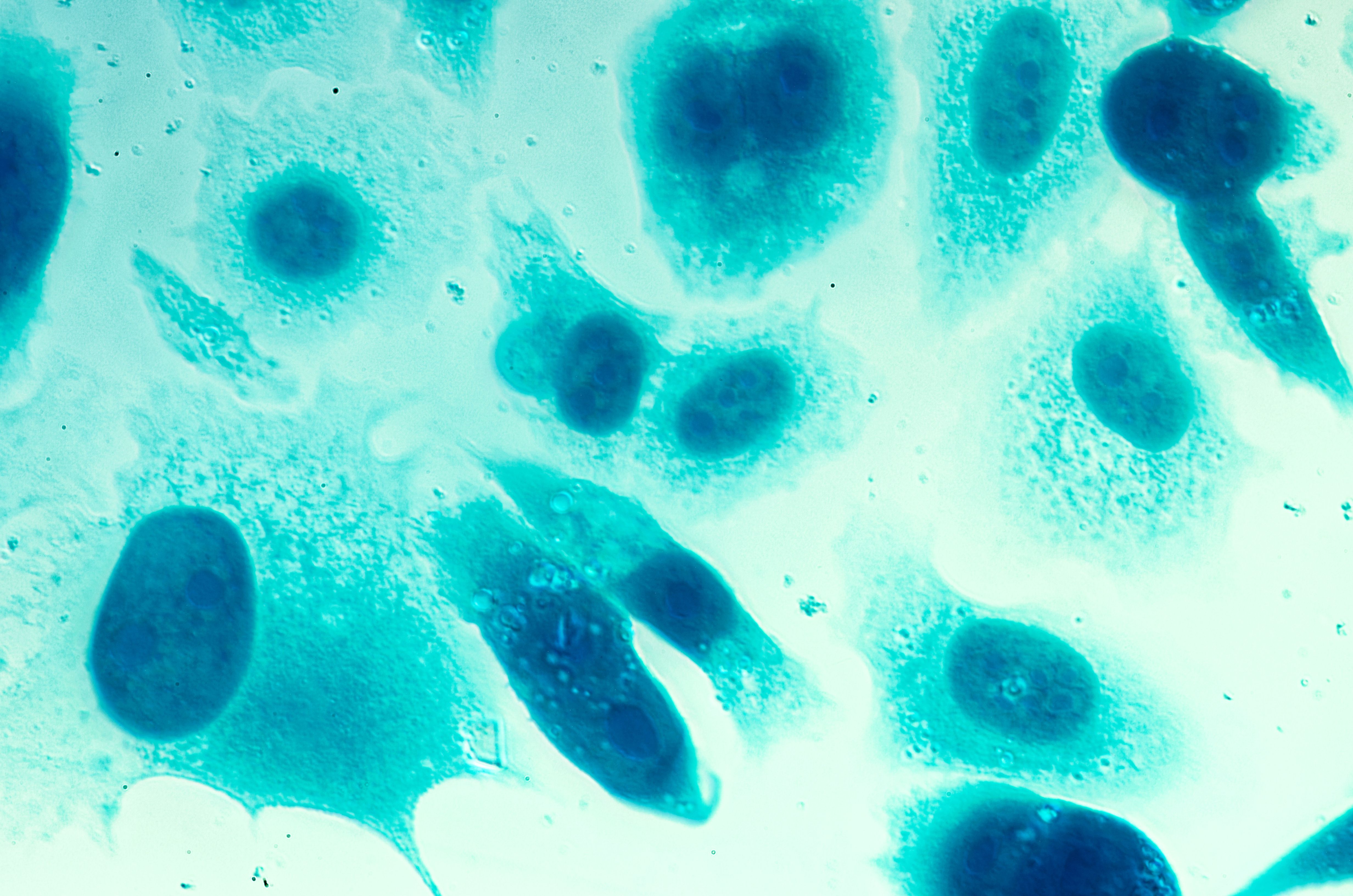ODAC Decision for Olaparib/Abiraterone in mCRPC Likely to Impact Forthcoming Studies
In an interview with Targeted Oncology™, Andrew J. Armstrong, MD gave a first-hand perspective on the discussion held during the recent ODAC meeting and explained what the discussion and vote mean for the future of olaparib plus abiraterone in metastatic castration-resistant prostate cancer.
Andrew J. Armstrong, MD, ScM, FACP

The outcome of the recent FDA Oncologic Drug Advisory Committee (ODAC) meeting may limit a future approval of olaparib (Lynparza) in combination with abiraterone (Zytiga) and prednisone or prednisolone to adult patients with metastatic castration-resistant prostate cancer (mCRPC) to patients with BRCA-mutant tumors only. The ODAC decided this should be the case in a 11 to 1 vote on April 28, 2023.1
The supplemental new drug application for olaparib plus abiraterone and prednisone or prednisolone in mCRPC is supported by findings from the phase 3 PROpel trial (NCT03732820). Three PROpel investigators addressed the ODAC to provide insight on the unmet need that the combination can potentially fill, and the clinical implications of a future approval. Among these investigators was Andrew J. Armstrong, MD, ScM, FACP, professor of Medicine, Surgery, Pharmacology, and Cancer Biology at Duke University School of Medicine, and member at Duke Cancer Institute.
In an interview with Targeted Oncology™, Armstrong, gave a first-hand perspective on the discussion during the ODAC meeting and explained what the discussion and vote mean for the future of olaparib plus abiraterone in mCRPC and other regimens.
TARGETED ONCOLOGY: Can you provide a recap on the purpose of the recent ODAC meeting, and the data presented by the PROpel study investigators in support of the application?
Armstrong: The purpose of the ODAC meeting was to let both parties, the FDA and AstraZeneca, discuss the data from the PROpel study. The FDA had a particular question, which was whether the FDA label for the approval of abiraterone plus olaparib should be restricted only to patients that have a BRCA mutation. They posed that question because the FDA was concerned that there may be groups of patients that are not getting much benefit from the combination, and the combination can have some added [adverse] effects. The ODAC meeting was basically a group of independent oncologists, who listened to both sides and then ultimately voted on that specific question. The final vote was 11 to 1 with 1 abstention in favor of a more restrictive label.
The FDA made several points during the meeting. Were there any points that you agreed with?
There's no doubt that the patients that have BRCA mutations either detected by tumor or cell-free DNA have a very large magnitude of benefit. They have an extended progression-free survival, radiographic progression-free survival advantage, and an overall survival advantage. There's no doubt about that. So, we agreed on that. Patients with BRCA mutations make up an 11% subgroup of PROpel, and that made a big difference. We would anticipate at least an FDA approval for that subgroup, so I think there was clear agreement on that.
There was 1 question about whether crossover should have occurred. Of course, in the PROpel study, patients could be unblinded and their genetic results given to them, and then patients could receive a PARP inhibitor if they had the PARP inhibitor available. If they had a mutation, that would confer sensitivity to olaparib. As of the time of the initial report of the PROpel study, less than 5 patients had done that. There were some concerns that the FDA had about whether the survival would have been as large, and even in the BRCA patients had there been a planned crossover. I don't disagree with that either. But the radiographic progression-free survival end point, which is the primary end point of PROpel, was of such a huge magnitude for the BRCA patients, so I think PROPEL is practice-changing for those patients.
Which points did you disagree with?
Now, where there was disagreement was how to define non-BRCA, and most of the ODAC meeting was simply about that. Those criteria for defining the subpopulations AstraZeneca, and most of the physicians who are defending the PROpel study, used a different definition of nonBRCA. All patients in PROpel had both tumor and plasma testing, and if either test had an informative negative result, then they were considered nonBRCA, as long as the other result was not positive. Some of the tumor tissue, as we know from clinical trials, degrades, and only about a third of patients are evaluable. That's true whether you collect the tumor tissue prospectively or retrospectively. In PROpel, about a third of the patients did not have an evaluable tumor biopsy for mutation profiling. In those patients, the plasma test was then relied upon. If they were negative by the tumor, they were BRCA negative, as long as their plasma was either not evaluable or negative. If they did not have an evaluable tumor test, then they were considered negative if their plasma test was negative. We felt confident that the vast majority of patients under that criteria are truly negative but acknowledge that maybe a few percent of patients could have had BRCA mutations or deletions that still might have been missed by even this very strict criteria. I think the FDA used an even more strict criteria for defining BRCA negative. According to the FDA, we had to have 3 negative tests, so basically a tumor test that was negative, and a plasma test that was negative. These patients were also germline negative, so a stricter criterion than what is even used in community practice.
Image Credit: © heitipaves - stock.adobe.com

I don't disagree with them that there is a group of patients that is probably not deriving a large benefit, but I think where we disagreed was that there's also a large group of patients that have 1 negative test, and you can't find a BRCA mutation, they don't have to have to 2 or 3 negative tests. It is a concerning precedent, if we're pulling out these subgroups and creating arbitrary exploratory subgroups and making regulatory decisions. That's my opinion. That was also the position that that we had on the PROpel side. Ultimately, ODAC made their own vote, and they decided that the greatest benefit was in the BRCA patients. Again, I don't disagree with that, but it is disappointing that patients that have 1 negative test would be potentially denied the opportunity and choice of having that combination, for example, in Europe and 36 other countries has this combination broadly approved. There's even disagreements between regulatory agencies just across the ocean.
Considering the outcome of the ODAC meeting, what is needed to fill the unmet need for new therapies to treate mCRPC in the future?
I think the outcome of this meeting suggests that in the United States, we'll have a more restricted label for the combination. This is probably going to be true for TELEPRO-II [NCT02673580] as well based on similar data. For nonBRCA patients, these men will still have an unmet need some patients will progress within just 1 or 2 years on abiraterone. We still need good combinations for those patients. There should be more efforts both from PROpel, and perhaps TELEPRP-II, to identify subgroups of patients, perhaps that are benefiting the most, even where there's no BRCA mutation detected.
There are other genes that when altered can cause PARP sensitivity. I think it would be good to look at that. It's also important to follow these patients up further and both PROpel and TELEPRO-II are still following patients on the long-term basis to see if the data matures and whether there are additional benefits that may be seen in nonBRCA patients. I think we will certainly look at that and it opens the opportunity to other treatments in this setting that could be combined with abiraterone or following abiraterone to delay chemotherapy.
We've certainly seen other positive trials like the PSMA-4 study [NCT04689828] suggesting that in this patient population that has not had chemotherapy that there may be benefits from 177Lu-PSMA-617. But the data have not been presented or published yet.
REFERENCES:
Oncologic Drugs Advisory Committee (ODAC) Meeting. FDA website. April 28, 2023. Accessed March 9, 2023. https://www.fda.gov/advisory-committees/advisory-committee-calendar/april-28-2023-meeting-oncologic-drugs-advisory-committee-meeting-announcement-04282023#event-information
Survivorship Care Promotes Evidence-Based Approaches for Quality of Life and Beyond
March 21st 2025Frank J. Penedo, PhD, explains the challenges of survivorship care for patients with cancer and how he implements programs to support patients’ emotional, physical, and practical needs.
Read More